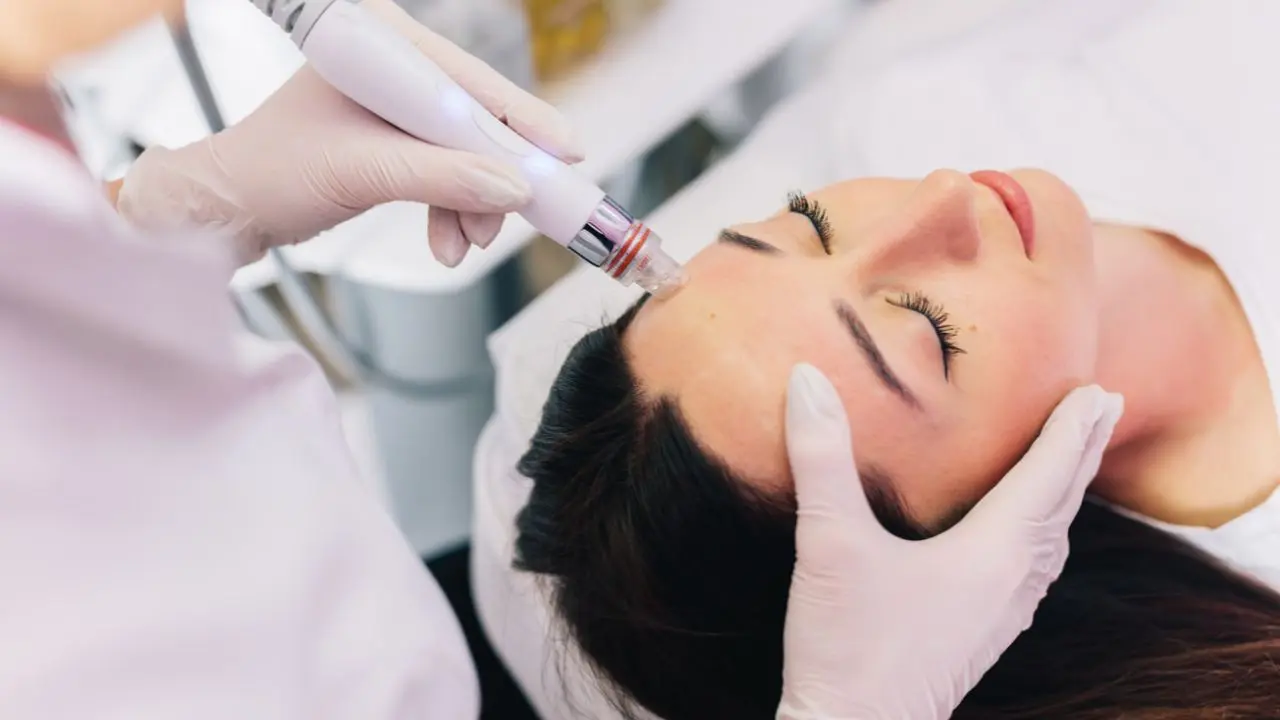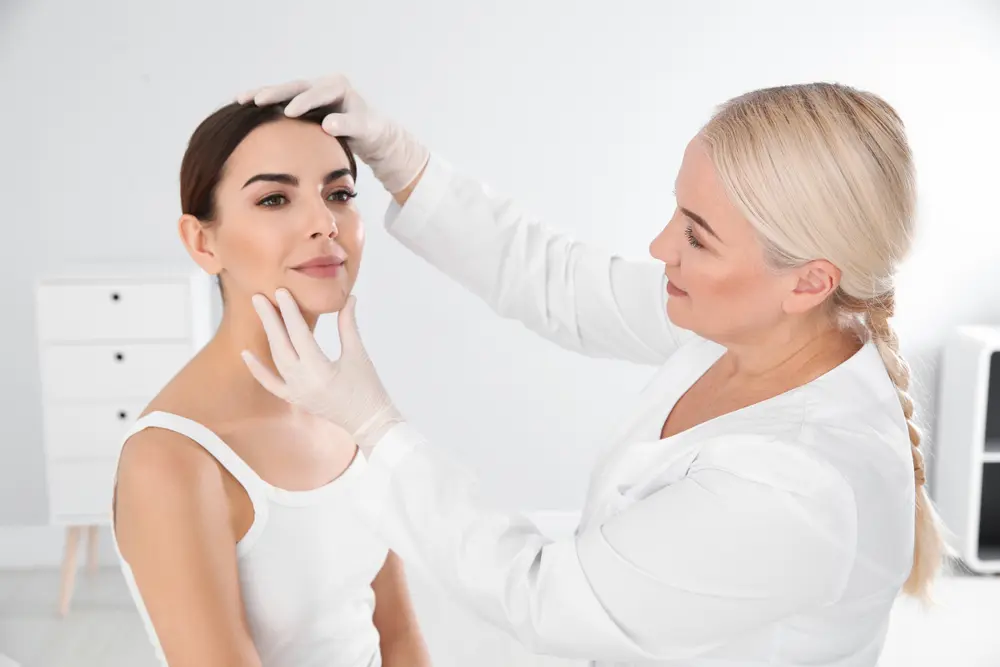DermOnDemand, led by board-certified dermatologist Dr. Hannah Kopelman, gives expert online care for many skin concerns. Knowing the dermatologist’s medical term helps you understand who is trained to care for your skin. This guide explains what dermatology means, what these medical doctors do, and when to see one.
Key Takeaways
- A dermatologist is a medical doctor who diagnoses and treats conditions affecting the skin, hair, and nails, including diseases of the skin and skin cancer.
- To become a board-certified dermatologist, a physician must complete medical school, a dermatology residency, and specialized training, with optional additional training such as Mohs surgery.
- Dermatologists address a wide range of skin issues, from acne and eczema to hair loss, and also provide cosmetic treatment to improve treated skin.
- Preventive steps like using sunscreen, checking your skin monthly, and avoiding tanning beds help reduce the risk of skin disorders and skin cancer.
- Online dermatology services like DermOnDemand offer fast, private access to licensed board-certified dermatologists for both urgent and routine care.
Definition, Training, and Medical Term
Qualifications and expertise
A dermatologist is a medically trained doctor who works with the skin, hair, and nails. The medical dermatology definition is the branch of medicine that looks at the diseases of the skin, hair, and nails – the largest organ in your body.
Medical dermatology definition, board certification, and term meaning
To become a board-certified dermatologist, a doctor must go to medical school, finish a residency, and get specialized training in dermatology. Some also do additional training for special skills like Mohs surgery. This surgery removes some skin cancers with great accuracy. The American Board of Dermatology checks that doctors meet high standards in diagnosing and treating skin conditions.
Dermatology Terms Explained

The root word for dermatologist and “dermo” meaning
When we ask what dermatology means, it comes from the Greek words “derma” (skin) and “logia” (study). The dermatologist defines an idea as simple – these are medical doctors who treat conditions related to skin, from mild rashes to serious cancer.
Another term for dermatologist
The word “dermo” in medicine means skin. Other names for a dermatologist include “skin doctor” or “skin specialist,” but the real role always means a licensed physician.
Types of Skin Doctors
General dermatologists
They work on common skin issues like acne, eczema, atopic dermatitis, and hair loss. They may also offer cosmetic treatment such as laser therapy or peels.
Subspecialties and their focus
Some focus on children’s skin, on skin lab tests, or on surgery to treat skin cancer.
Difference between a dermatologist and a skin specialist
Some “skin specialists” are not doctors. Only a board-certified dermatologist can fully treat all skin disorders.
Conditions Dermatologists Treat

Common skin, hair, and nail issues
A board-certified dermatologist can treat over 3,000 conditions, including:
- Inflammatory diseases of the skin, like eczema, psoriasis, and atopic dermatitis.
- Infections of the skin – bacterial, viral, or fungal.
- Hair and scalp problems, like hair loss or dandruff.
- Skin cancer – they treat skin cancer, such as melanoma or basal cell carcinoma.
When to see a dermatologist
They may also do cosmetic treatment to improve the treated skin after injury or illness.
You should see a dermatologist if:
- A skin problem lasts more than a few weeks.
- You have a new mole or growth.
- Chronic issues like eczema keep coming back.
- You need to treat skin cancer or get a skin check.
Dr. Hannah Kopelman and DermOnDemand help patients treat conditions faster with secure online visits, often quicker than in-office care.
Preventive Skin Care and Self-Monitoring
Taking care of your skin helps prevent many skin disorders. Simple daily steps can keep your skin healthy and lower the risk of problems. Check your skin often for new moles, lasting rashes, or any changes in texture.
Sun safety is key for protecting the largest organ in your body. Use sunscreen every day, wear long sleeves or hats, and stay out of the sun during peak hours. These habits can help prevent early aging and lower the risk of diseases of the skinlike skin cancer.
Seeing a board-certified dermatologist for regular check-ups adds another layer of protection. They can do full skin exams, find skin issues early, and give you a plan to care for your skin.
Easy steps to protect your skin:
- Wear sunscreen with SPF 30 or higher every day.
- Check your skin once a month.
- Avoid tanning beds and long hours in the sun.
- Use moisturizer to keep your skin from getting dry.
How to Find a Dermatologist Near Me
Benefits of online dermatology care
When you look for a dermatologist, make sure they are a board-certified dermatologist by the American Board of Dermatology. This means they have the right schooling and specialized training to handle skin disorders safely.
Online dermatology care can:
- Give you 24-hour access without travel.
- Offer privacy for personal skin issues.
- Provide fast prescriptions and follow-ups for skin problems like acne or atopic dermatitis.
Choosing a board-certified dermatologist
DermOnDemand offers all these benefits with licensed medical doctors who have proven skills in diagnosing and treating skin problems.








